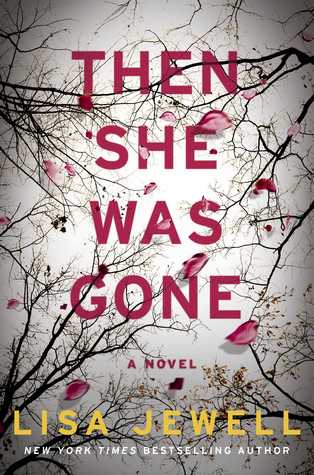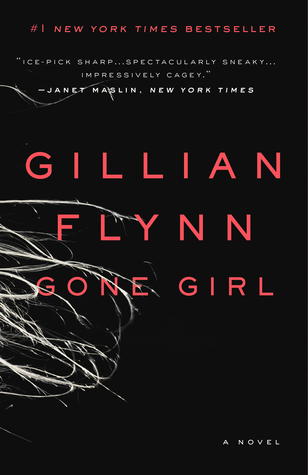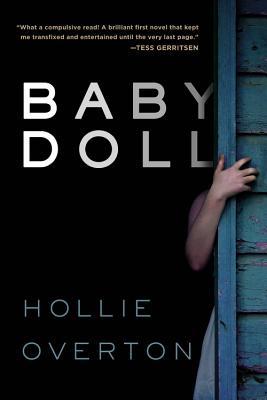Lisa Jewell's new mystery Then She Was Gone begins a decade after a teenage daughter disappears without a trace. That's when the missing girl's mother meets a charming single father whose young child seems…familiar. Jewell digs into the mystery genre's missing persons troupe to unearth some hidden reads for you!
Two of the most fecund subjects to write about are dead bodies (Who did it? Why? How?) and missing people (Where have they gone? And most importantly, why?).
Someone is recorded as missing in the UK once every two minutes. That’s an average of 835 police reports every single day. From a writer’s perspective, that’s 835 stories every single day. And that’s just the UK.
There is something horribly compelling about the black hole left when someone disappears. No body to weep over, no coffin to lower, no grave stone to lay flowers upon. Just a terrible, yawning expanse of desperate nothing. An empty crib still rocking metaphorically in the backdraft of a child’s disappearance. A spot on the pavement where a friend stood the last time you saw them, where they said, "Goodbye, see you soon." The dip in the pillow where your wife last rested her head as she talked to you about dinner plans for that night, and then never came home. These are the places, the moments that the people left behind return to over and over looking for the thing that was said or was not said, looking for the reason, the answer, the key.
No one disappears without a reason. There is always a story. They have been murdered, they have been kidnapped, they have lost their memory, they have thrown themselves from a cliff, they are hiding from some peril, or they have simply shrugged off the shackles of an existence they didn’t like and wandered away to find one they like better.
The art of the missing person novel is in uncovering that story, retracing those steps, unpeeling the onion, layer by tantalizing layer to get to the absolute truth.
It’s hard to find examples of missing person novels in the classics cannon. But one of the most extraordinary examples of an early psychological thriller—or, as they were known in Victorian times, "sensation novels"—is The Woman In White by Wilkie Collins. Here the protagonist, a young, soulful art teacher called Walter, meets the missing person in the first chapter—the eponymous woman dressed in white—but doesn’t realize the significance until later on when he comes upon a woman in the north of England who bears a striking similarity to her. An extraordinarily well-rounded cast of characters tells the shocking tale.
Sometimes life imitates art and never was this truer than the time that Agatha Christie disappeared for eleven days, later being found in a hotel in Harrogate, Yorkshire with no idea of why or how. Agatha Christie and the Eleven Missing Days by Jared Cade describes the author’s painstaking detective work as he sets about uncovering the truth about her mysterious disappearance. It’s a fascinating look at her life through the tiny clues that reveal both facets of her inner self and the truth about her missing eleven days.
Another bone-chilling real-life story of a missing person is that of a young British woman called Lucie Blackman who disappeared off the streets of Tokyo in 2010, her fate unknown until nearly eighteen months later. People Who Eat Darkness by Richard Lloyd Parry is a dark, shocking and exquisitely written account of Lucie’s story and of the aftermath of her body finally being found.
In 2012 (Six years ago! Surely not!) Gone Girl was published. Gillian Flynn took the missing person novel, threw it onto a potter’s wheel and made something completely different out of it. Is she missing? Is she dead? Was she murdered? The answer of course being none of the above. But the public’s appetite was well and truly whetted and Gone Girl was followed—and continues to be followed—by a slew of edge-of-your-seat dramas about people disappearing; missing daughters (The Girl In The Red Coat by Kate Hamer), missing sons (The Missing by C.L. Taylor), missing teenagers (Daughter by Jane Shemilt) missing husbands (Vanished by Tim Weaver), missing wives (The Vanishing Year by Kate Moretti), missing sisters (Sister by Rosamund Lupton), and missing parents (Let Me Lie by Clare Mackintosh).
One of the biggest of the post-Gone Girl thrillers has to be The Couple Next Door by Shari Lapena. Here a tiny baby is the vanished one; Cora, taken from her cot in the night as her parents dine next door with their neighbors. It’s the kind of book that can’t be read in chunks, but must be inhaled in vast swathes as you yearn to find out what has happened to their baby.
I Am Missing by Tim Weaver, a little like my previous novel, I Found You, looks at being missing from the perspective of the missing person. Here, as in my own novel, a man is found on a beach with no memory of who he is or how he got there. But unlike my novel, in which the mystery is unpicked by a kindly local mum, here we are in the hands of David Raker, a specialist in missing persons. But even he, a veteran of eight Tim Weaver novels finds things to baffle and astound in the unfurling of this missing person’s extraordinary story.
And then there is Baby Doll by Hollie Overton. A little like the amazing Room by Emma Donoghue, this is the story of what happens in the aftermath of a disappearance. Lily was missing. Locked in a room since she was sixteen years old, abused and violated by her captor. She has carried and raised a child. And now she is free. How easy is it to recommence a life that has had the pause button pressed on it for six years? You’ve changed. The people you left behind have changed. The world you left behind is the same but unrecognizable. The freedom you craved has served you up yet another batch of problems.
And this was the conundrum I encountered whilst writing my current novel, Then She Was Gone. I’d reached the end not knowing if my missing girl should reappear or stay missing. I couldn’t decide which fate was worse for Ellie Mack. I wrote it one way and then my editor read it and told me to write it the other way. Both endings equally sad, but only one felt right.
But there is complete closure and that is the absolute key to the missing person novel; whether the missing person is found dead or alive, back home or a thousand miles away, the reader must know what happened to them; the explanation for their disappearance must be full and comprehensive.
Because no one ever disappears without a reason.
posted by Cybil on April, 23
from Goodreads Blog https://ift.tt/2qUrNWM
via IFTTT












No comments:
Post a Comment